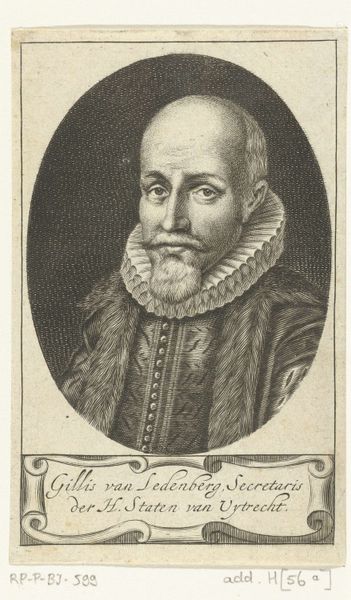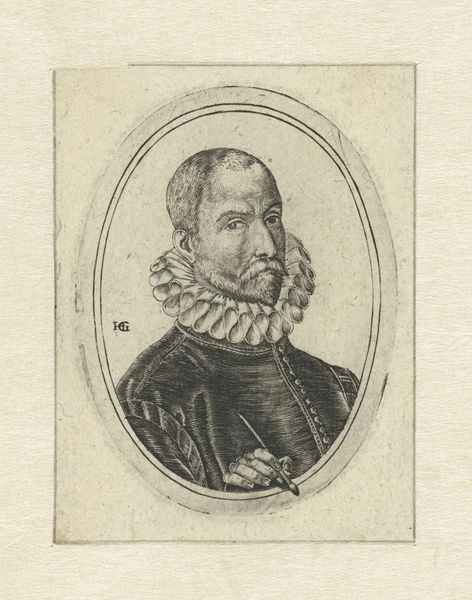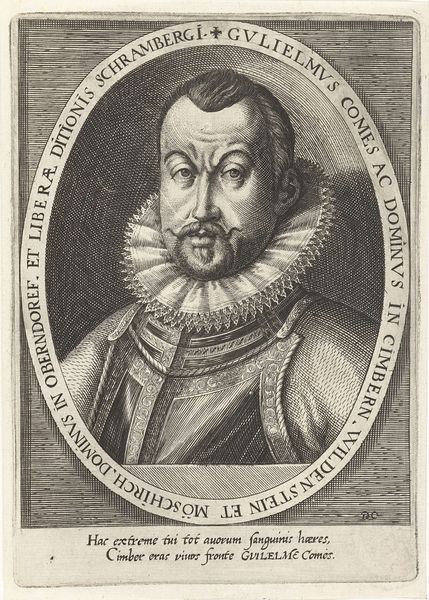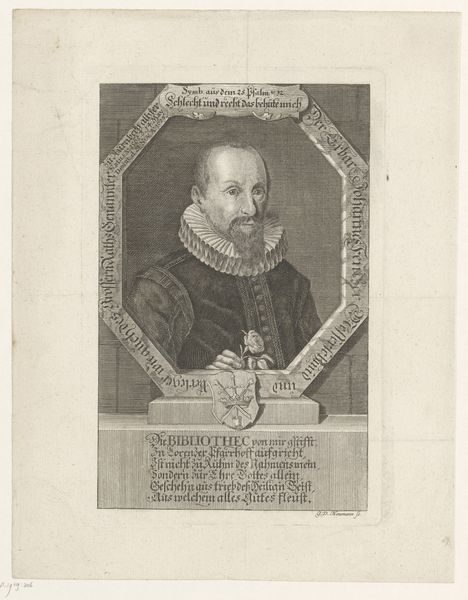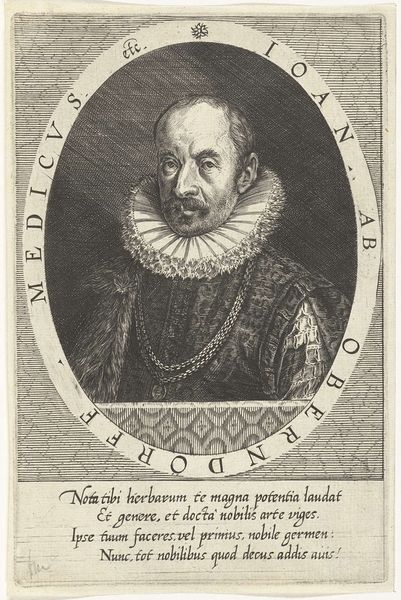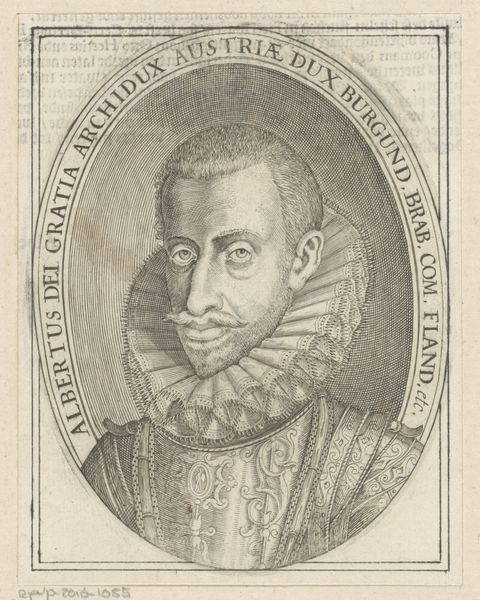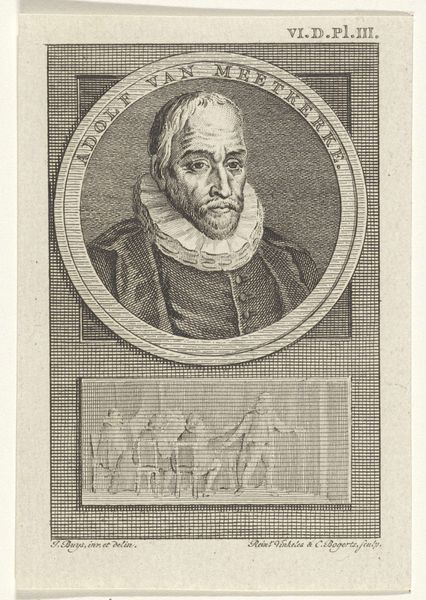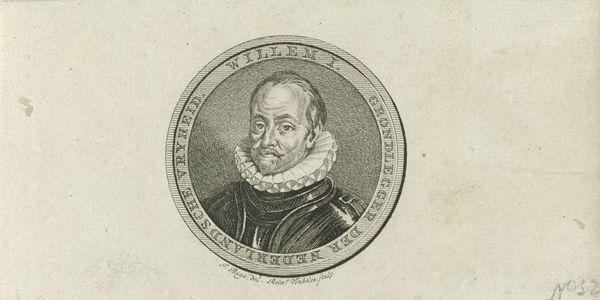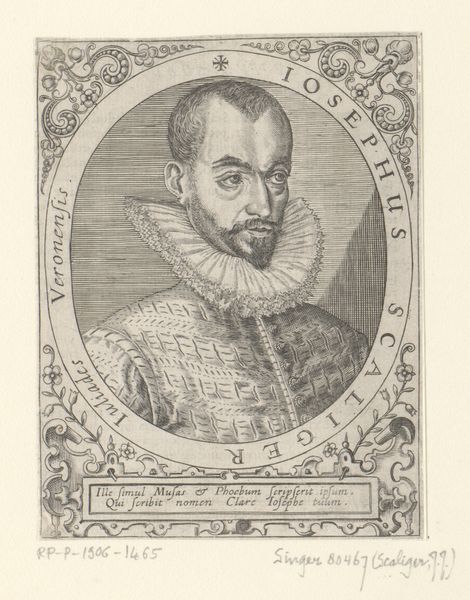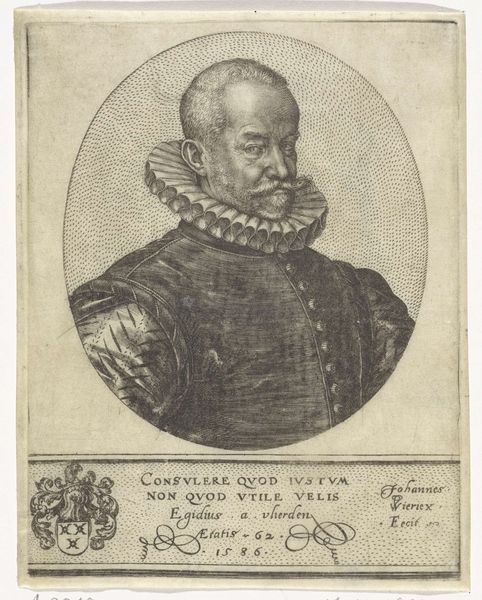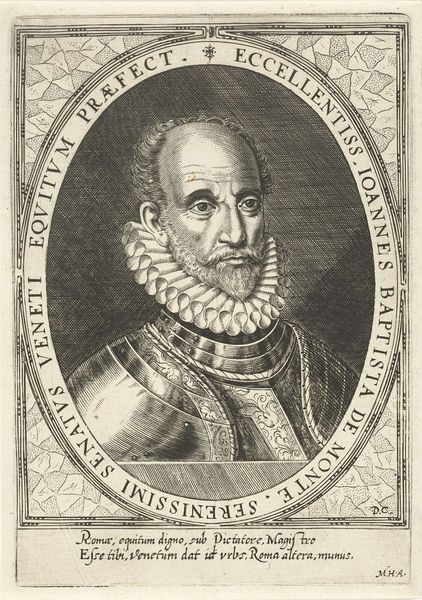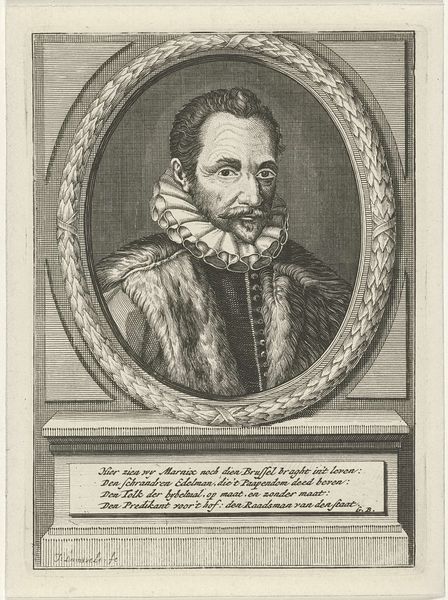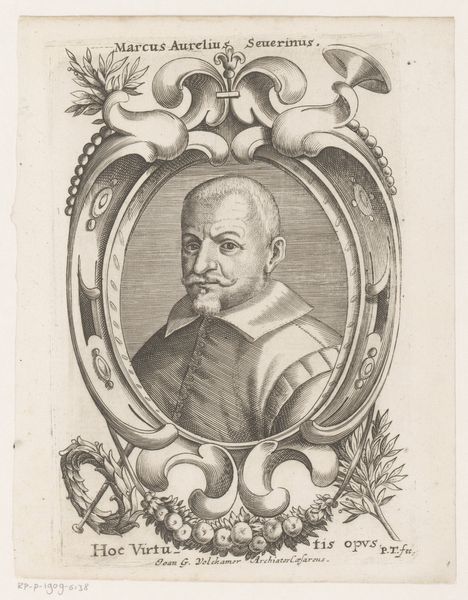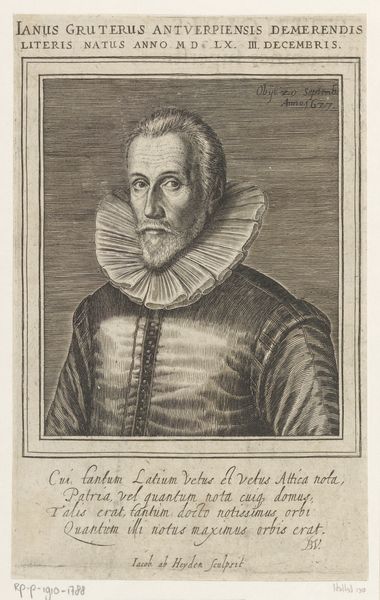
engraving
#
portrait
#
old engraving style
#
mannerism
#
portrait drawing
#
engraving
Dimensions: height 81 mm, width 63 mm
Copyright: Rijks Museum: Open Domain
This is Johannes Wierix’s portrait of Johannes Stradanus, made in the late 16th or early 17th century. It’s an engraving, meaning the image was incised into a metal plate, likely copper, with a tool called a burin. Ink was then applied to the plate, and the excess wiped away, leaving ink only in the incised lines. The plate was then pressed onto a sheet of paper, transferring the image. Look closely, and you can see the extraordinary level of detail Wierix achieved with this method. The density of lines creates the tonal variations, giving form to Stradanus’s face and clothing. The crispness of the lines also speaks to the precision and control required to execute this technique. Engraving was a highly skilled craft, demanding years of training. It was also a reproductive medium, used to disseminate images widely. In this sense, the portrait of Stradanus reflects the growing importance of visual communication and the rise of print culture in early modern Europe. By appreciating the craft involved, we can see this print not just as a portrait, but as a product of a specific time and place.
Comments
No comments
Be the first to comment and join the conversation on the ultimate creative platform.
